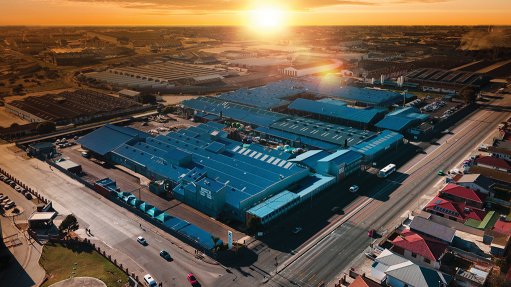
BRIGHT TOMORROW AutoX is well prepared to meet the demands of the local battery demands and the future EV market demands
While the full extent of the impact of electric vehicles (EVs) on the local battery industry is not expected to reach South Africa soon, the industry is prepared to service EVs and continue to meet the current market demands of internal combustion engine (ICE) vehicles, says battery manufacturer and distributor AutoX CEO Glenn Geldenhuis.
As the EV industry grows, AutoX is “staying close to” the international players through close association with the world's largest battery supplier, global energy storage solutions company Clarios, and various international battery associations.
Most EVs still require a standard automotive battery, in addition to the high-voltage propulsion battery, for the low-voltage safety systems to function. Therefore, even as demand for EVs continues to rise, there will still be a market for the current technology for the foreseeable future, he adds.
For the high-propulsion battery, technology is continually being researched and developed to increase performance, longevity and safety with and by vehicle manufacturers. The current preferred technology in these batteries is lithium based.
A key challenge that needs to be addressed is the recycling of lithium batteries, as it is still costly to recycle them, consequently making recycling lithium batteries not commercially viable at this stage, compared with lead acid batteries which have a 98% recycling level, notes Geldenhuis.
A further challenge for countries or regions that rely mainly on coal-generated eletricity is the carbon impact of EVs. In countries or regions that rely more heavily on cleaner energy generation, EVs can have less of a carbon footprint. However, in coal-reliant countries, EVs will have a bigger carbon footprint because of how they are charged.
Another factor that will impact the adoption of EVs, particularly in South Africa, is the unstable and/or unreliable electricity supply.
Dealer networks that cater for the aftermarket will need work, and the cost implications associated with EVs will likely result in South Africa’s adoption of EVs lagging the rest of the world.
Geldenhuis also explains that, in some countries, particularly European countries, governments subsidise EVs as a means of encouraging the public to buy EVs rather than ICE vehicles. This has been one of the main reasons for growth in the adoption of EVs in such countries. In South Africa, the EV industry may not yet have full governmental support in terms of subsidies to the consumer like in most other countries.
As a result, the South African battery industry is well positioned to continue to serve the current market of automotive batteries for ICE vehicles in the years to come.